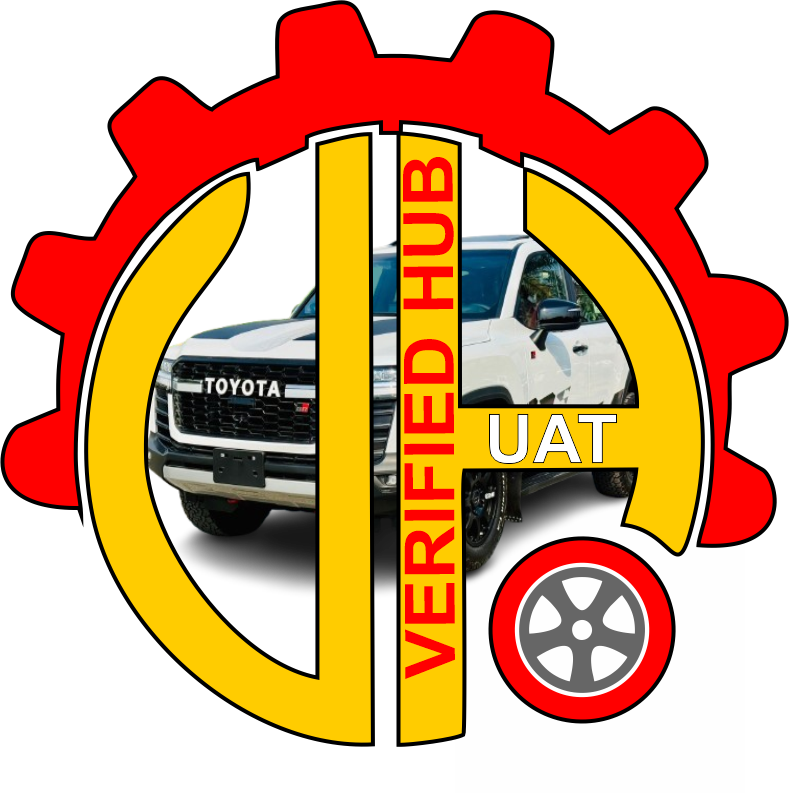Frequently Asked Questions
Yes, we offer 3 months major components warranty “such as Engine, Water pump, Transmission and Air conditioning etc.” This ensures that you have peace of mind and protection for your purchase. If you have any specific questions about the warranty coverage, feel free to ask, and we will be happy to provide more details.
It’s generally recommended to change your car’s oil every 5,000 to 10,000 kilometers, but it can vary depending on factors like the type of oil you use, your driving habits, and the manufacturer’s recommendations. Modern vehicles often come with an oil life monitoring system that can give you a more accurate indication of when it’s time for an oil change. Always refer to your car’s manual for specific guidelines, and pay attention to any warning lights or messages on your dashboard. Regular oil changes are crucial for maintaining your engine’s health and overall performance.
Checking your vehicle’s tire pressure is a simple yet important task. Here’s a step-by-step guide:
Gather the necessary tools:
- Tire pressure gauge
- Air compressor (if needed)
Find the recommended pressure:
- Check your vehicle’s manual or the placard located on the driver’s side door jamb or inside the fuel door for the recommended tire pressure. It’s usually measured in psi (pounds per square inch).
Park your car:
- Park your car on a level surface and turn off the engine.
Remove the valve cap:
- Unscrew the valve cap from one of the tires.
Use the tire pressure gauge:
- Press the tire pressure gauge onto the valve stem and press down firmly. You should hear a hiss sound as air escapes, and the gauge will provide a pressure reading.
Check the pressure:
- Compare the measured pressure to the recommended pressure. If it’s too low, add air; if it’s too high, release some air until you reach the correct pressure.
Repeat for all tires:
- Check the pressure in all four tires, as they may vary.
Replace the valve caps:
- Screw the valve caps back on securely.
Remember to check your tire pressure regularly, especially before long trips, as proper inflation contributes to better fuel efficiency and overall safety.
Rotating your tires is essential for maintaining even tire wear and extending the life of your tires. A general guideline is to rotate your tires every 8,000 to 12,000 kilometers, or as recommended by your vehicle’s manufacturer. However, it’s a good idea to check your vehicle’s manual for the specific recommendations, as different cars may have different requirements.
Regular tire rotation helps ensure that each tire wears evenly, preventing uneven tread wear and promoting better traction and handling. It’s a relatively simple maintenance task that can contribute to a smoother ride and longer tire lifespan.
Auto detailing involves a thorough and meticulous cleaning, restoration, and finishing of a vehicle to produce a high-quality and polished appearance. It goes beyond a typical car wash and involves cleaning and reconditioning both the interior and exterior of the vehicle. This process can include tasks such as washing, waxing, polishing, vacuuming, and restoring the car’s paint, leather, and other surfaces to enhance its overall aesthetic and protect it from environmental damage.
While it’s not uncommon for older vehicles to develop minor oil leaks over time, it’s still important to address them in a timely manner. Ignoring an oil leak can lead to more serious issues and potential damage to your engine. Here are a few reasons why you should address an oil leak promptly:
Engine damage: Oil is crucial for lubricating the engine’s moving parts. If the oil level drops too low due to a leak, it can lead to increased friction and overheating, potentially causing significant engine damage.
Safety concerns: Oil leaks can pose a safety hazard if the oil drips onto hot engine components, increasing the risk of a fire.
Environmental impact: Oil leaks can contaminate the environment, especially if they occur in large quantities. This can harm the ecosystem and may lead to fines in some areas.
Increased repair costs: Fixing a small oil leak early is generally less expensive than dealing with the consequences of engine damage caused by prolonged oil loss.
If you notice an oil leak, it’s advisable to have it inspected and repaired by a qualified mechanic as soon as possible. Regularly checking your vehicle for leaks and addressing them promptly is part of good vehicle maintenance.
Brake pulsation, often felt as a vibrating or pulsating sensation in the brake pedal, is a common issue that can have several causes. Here are a few potential reasons for brake pulsation:
Warped Brake Rotors:
- Overheating during heavy braking or prolonged braking can lead to the warping of brake rotors. This uneven surface can cause the brake pads to grab intermittently, resulting in pulsation.
Uneven Brake Pad Wear:
- Uneven wear on brake pads can lead to an uneven braking surface. If the brake pads don’t make consistent contact with the rotors, it can cause pulsation.
Brake Caliper Issues:
- Sticking or uneven movement of brake calipers can result in uneven pressure on the brake pads, causing pulsation.
Wheel Bearings:
- Worn or damaged wheel bearings can contribute to brake pulsation as they can affect the smooth rotation of the wheels.
Suspension Issues:
- Problems with the suspension system, such as worn bushings or control arms, can lead to irregular tire and brake wear, causing pulsation.
Brake Fluid Issues:
- Contaminated or old brake fluid may lead to inconsistent brake performance and contribute to pulsation.
If you experience brake pulsation, it’s essential to have your brakes inspected by a qualified mechanic. They can identify the specific cause of the issue and recommend the necessary repairs to ensure your brakes function properly and safely. Regular brake maintenance and prompt attention to any issues can help prevent more significant problems down the road.
Tire rotation is a simple and cost-effective maintenance task that contributes to safety, performance, and the longevity of your tires. It’s generally recommended to rotate your tires every 8,000 to 12,000 kilometers or as specified in your vehicle’s manual.






VERIFIED HUB
A trusted name in the UAE for buying and selling all types of vehicles. We specialize in quality used automobiles, offering reliable service across Dubai and the entire United Arab Emirates.
Get In Touch
- Info@verifiedhubautomobile.com
- +971 43 27 69 01
- +971 52 70 55325
- Pin Location
©2026 All Rights Reserved.
